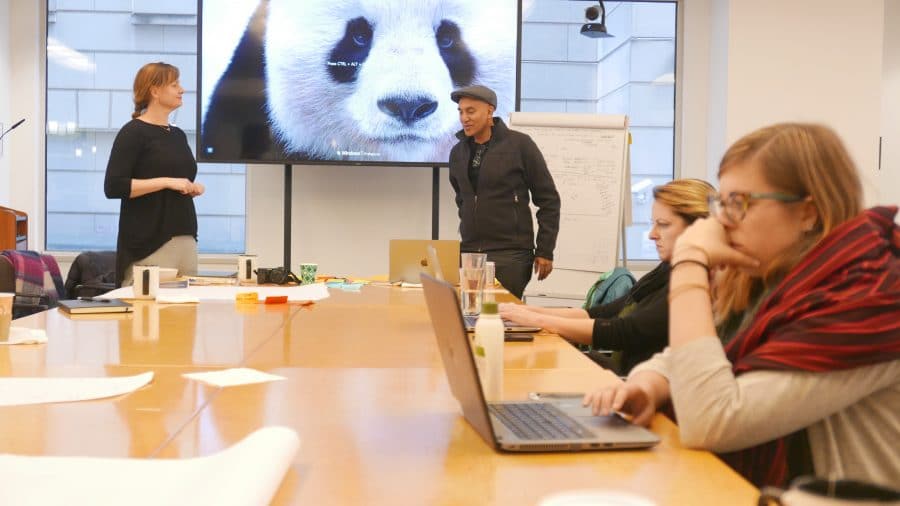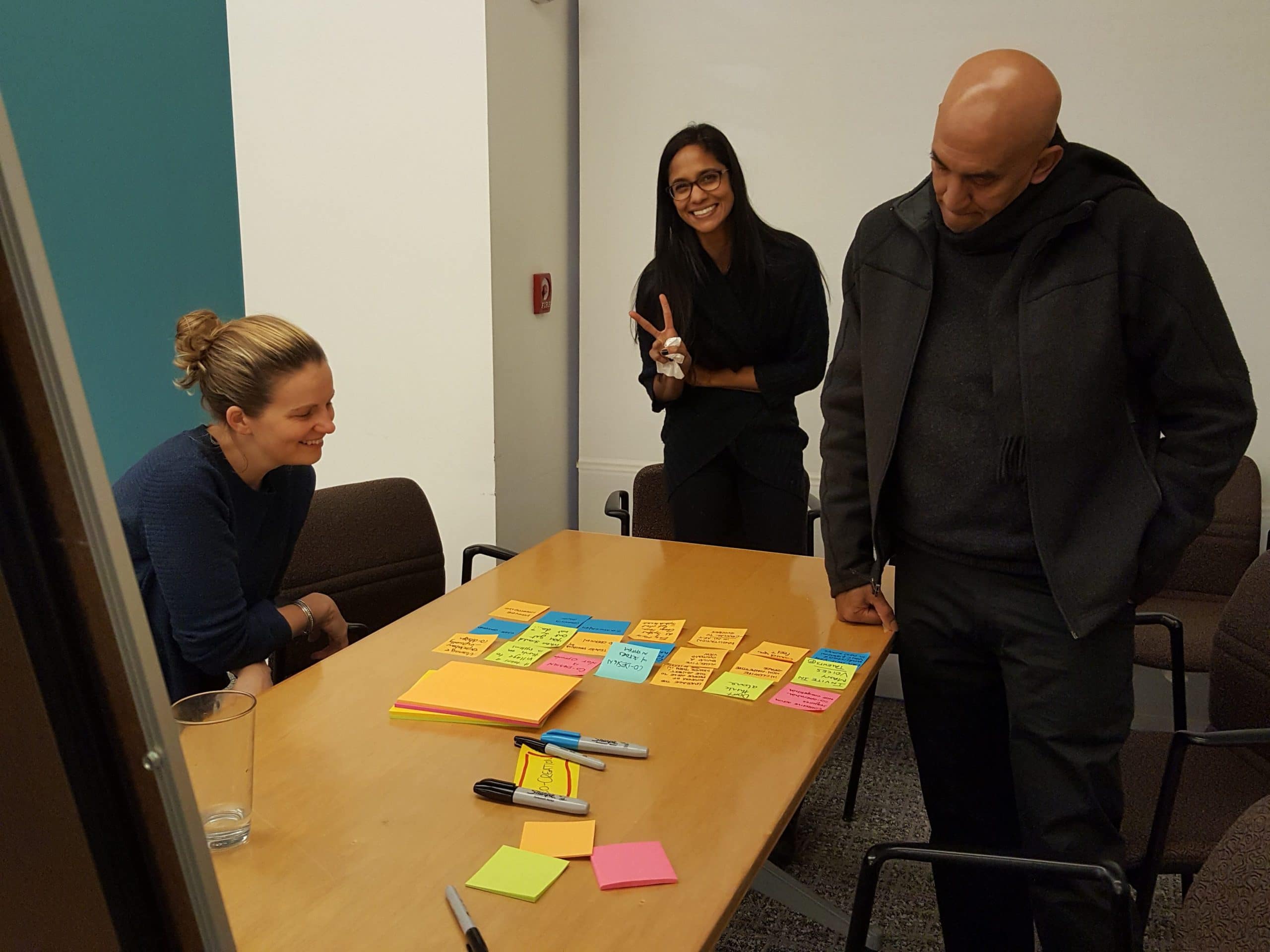The Art of Systems Change by WWF
We can no longer ignore that the future of humanity and the planet are at risk. How we go about our work must be in intentional service of the lasting change we seek to make.
With a team of 15 participants, six from WWF and nine external experts, we had the pleasure of facilitating the Book Sprint “The Art of Systems Change: Eight guiding principles for a green and fair future”. The Book Sprint happened in early December, and after an internal review process, the book was recently published in July. It is now available to be used in workshops and distributed freely. According to the organizer, Shauna Mahajan, by mid-August the book had already hit 1k downloads in a month, before the official book launch and without any communications efforts!
The Book Sprint took place in Washington, DC, following up the annual WWF Fuller Symposium in the National Geographic Society headquarters, attended by the external experts that participated in this Book Sprint.

WWF Book Sprint participants
Working with a big team (15 participants is the maximum we recommend) with different backgrounds was undoubtedly a challenge. Some of them were facilitators themselves, who were aware that it is tricky to facilitate facilitators! Nonetheless, each of the participants brought in really interesting views on the topic along with friendly communication styles. It was interesting to see an overall tendency of talking in metaphors, which added color to the conversations and the text, but also postponed disagreements for a while. Not only was it a big and opinionated group, this was also a 3 day sprint, instead of our usual 5 days, so we had to come to agreements even faster. During the 3 days, 8 guiding principles of systems change emerged.
Shauna Mahajan, from WWF, shared her impressions on this experience:
It was the first time that many of us wrote in such collaborative way – writing and rewriting each other’s thoughts over the course of three days – this wasn’t easy! But this was exactly what we needed to do to distill the essence of ‘systems thinking.’ We’re really excited to see how the book can support a new way of working in conservation that helps us meet the challenges of today’s world!

WWF Book Sprint participants
The main goal of the participants was to publish a guiding book on systems change for WWF and other organizations to apply in their work. In that sense, it could not be too technical or complicated, so people could read it and integrate into their projects easily. Here’s a paragraph on the overview of the book:
This book lays out a vision and an actionable plan for seeking sustainable solutions for our planet. In Part 1, we outline the fundamental tenets of systems thinking, the behavior of complex systems, and the implications for our understanding of the world. In Part 2, we outline a set of eight guiding principles for working to achieve long-lasting solutions to tackle our most pressing environmental and societal challenges. Finally, we lay out a map for the road ahead, and for the individual journey into systems practice that each of us is embarking on.
For us, it was an amazing opportunity to work with such a renown organization on such a prominent topic. It was inspiring to see how the experts and the WWF team work: each one so passionate, self reflective and committed to their work.
Take a look at our growing library of policy making books.
